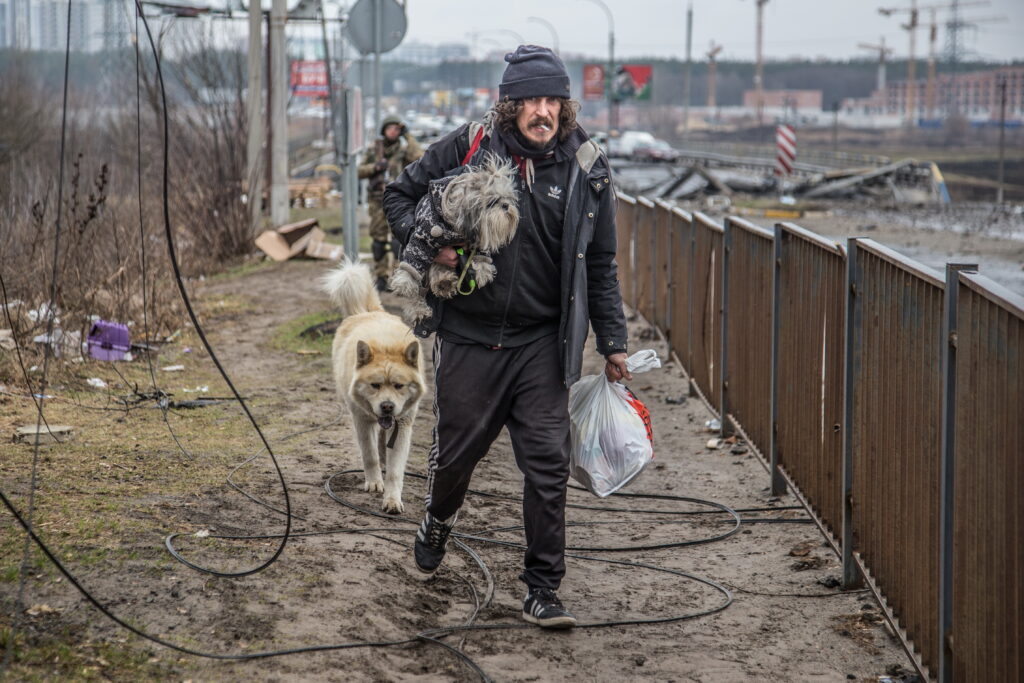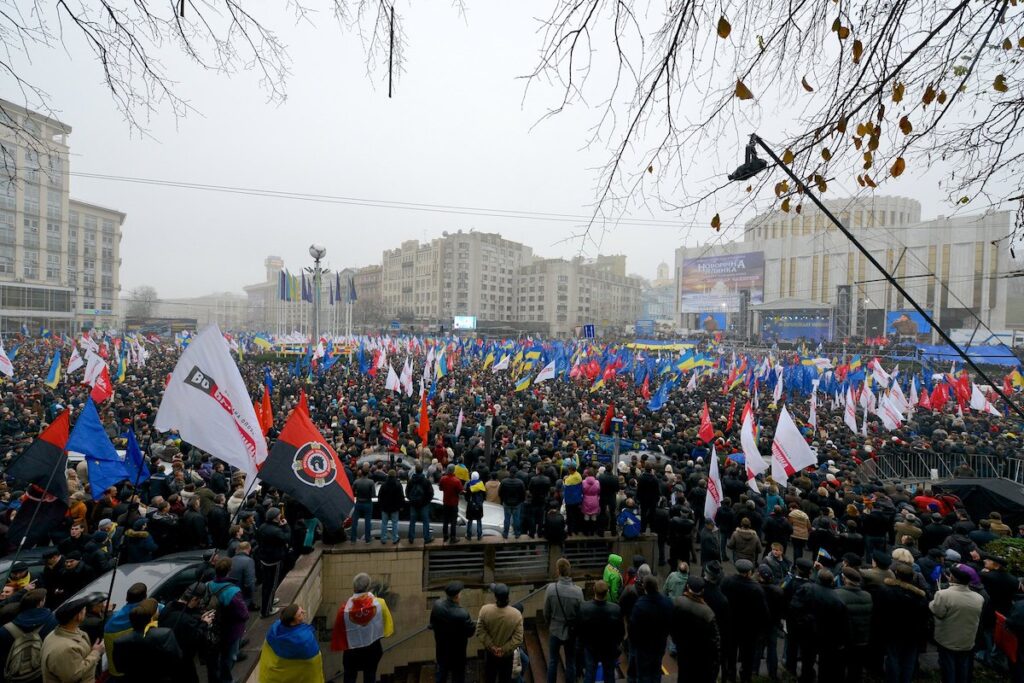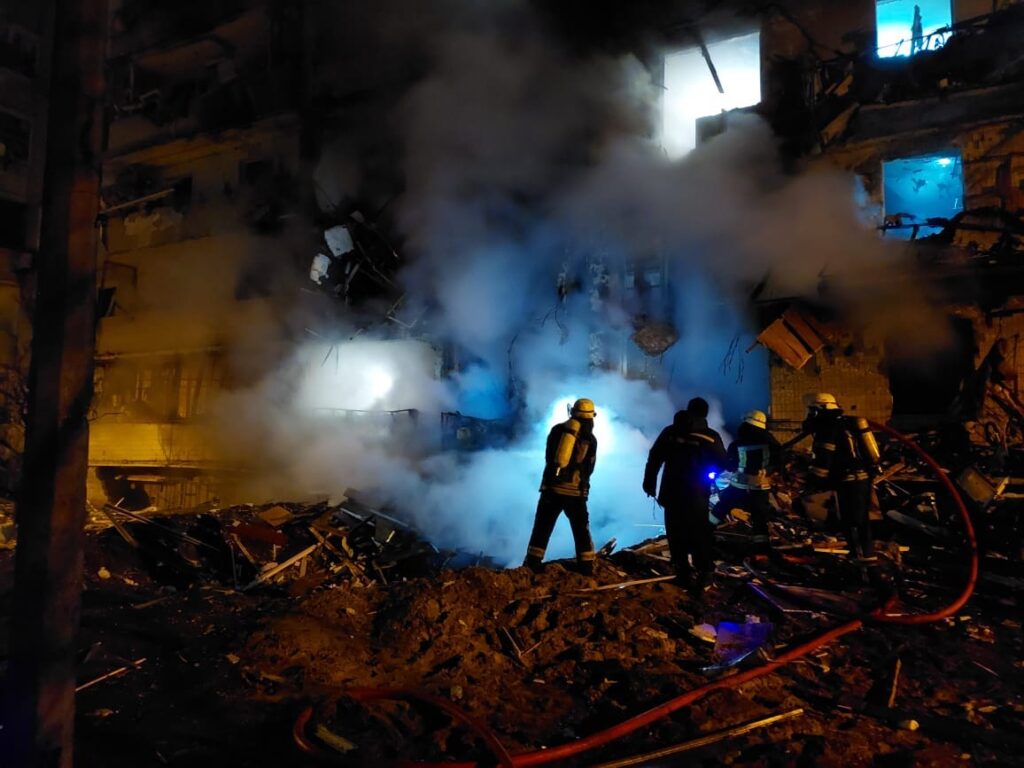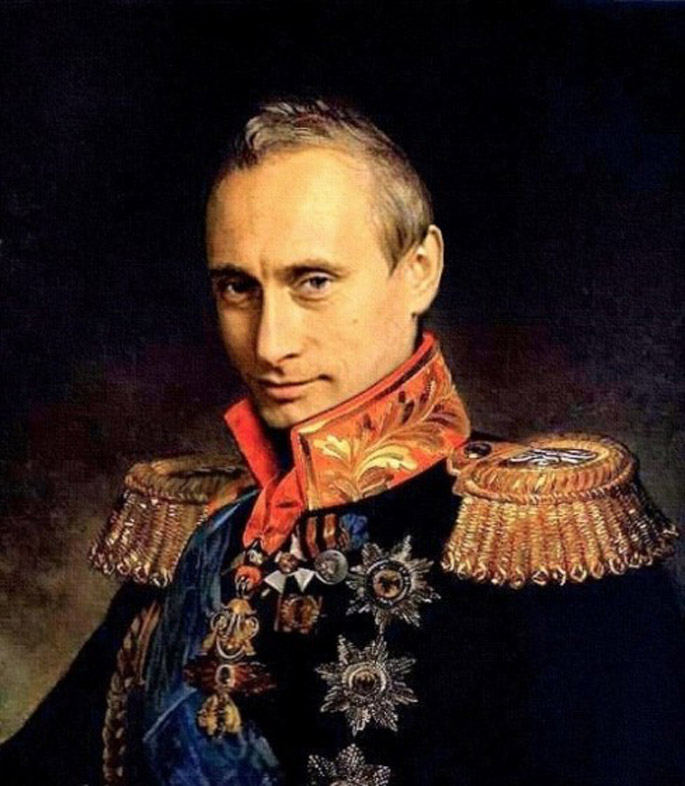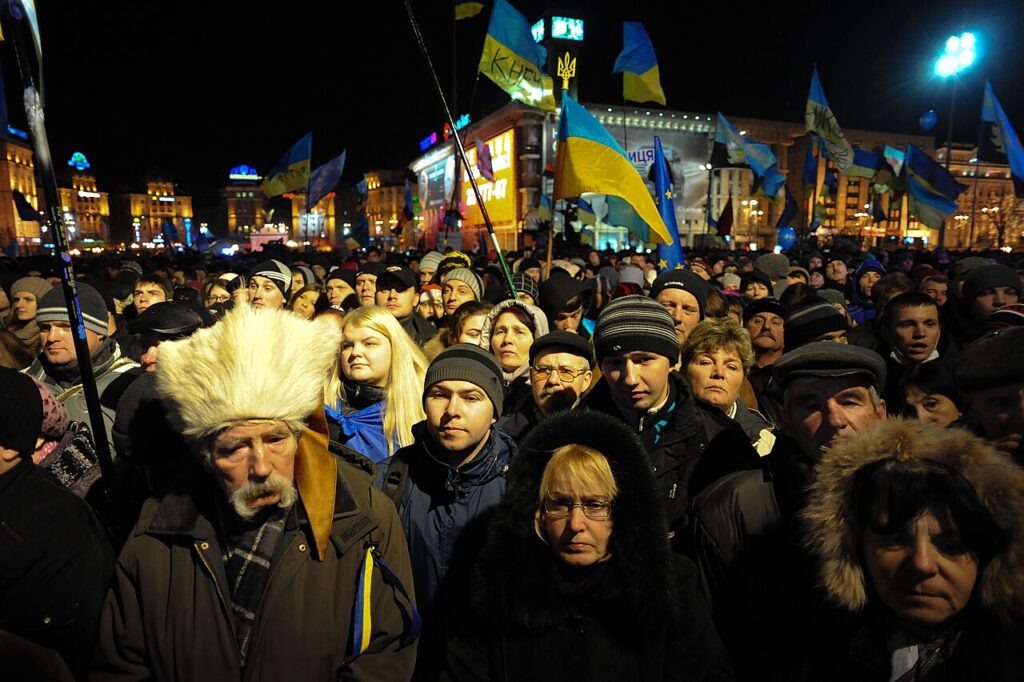
Introduction
Soon after the Russian invasion of Ukraine, in an earlier post on this blog (Hann 2022), I emphasized the geopolitical and economic interests of the west, especially US corporations. I extended my analysis in 2024 in the Focaal journal itself (Hann 2024a; 2024b), where my article benefited from the critical insights of Denys Gorbach (2024) and Volodymyr Ishchenko (2024).
But political outcomes are also shaped by emotions, moods and personalities. The world has recently witnessed dramatic tensions between the Ukrainian president, Volodymyr Zelensky, and the US president, Donald Trump. Sooner or later the Russian president, Vladimir Putin, will also move to centre stage. These leaders strive simultaneously to mobilize mass sentiment in their respective countries and to win the battle for the moral high ground internationally. While media coverage focuses on the traits of these individuals, anthropologists tend to be more interested in the subjectivities of larger communities.
At present, Trump’s efforts to initiate peace negotiations are widely perceived as a crude capitulation to Putin, sometimes as appeasement. These unprecedented frictions have generated an outpouring of moral outrage and intensified support for the Ukrainian cause in western Europe. The solidarity of the European Community (minus Hungary) and the demonising of Putin follow 30 years of the humiliation of Russia and western hubris after congratulating itself on having won the cold war. The best word to describe the role of Ukraine right now is perhaps hamartia – a “fatal flaw” that leads to the downfall of a tragic hero. I argue that Ukraine is the nationalist hamartia sealing the fate of post-cold war Europe.
Humiliation in Moscow (and elsewhere)
German historian Ute Frevert (2020) has shown that humiliation is an emotion deeply rooted in European society as well as a significant political force. The cold war preserved a semblance of equivalence between the two camps, but the disintegration of the Soviet Union became a humiliation for Russia. Mikhail Gorbachev’s vision of a “common European home” was forgotten as he himself disappeared from the political scene. By the time Putin replaced Boris Yeltsin as president at the end of 1999, the Russian Federation was on its knees both politically and economically. Three former Soviet republics were on course to join NATO, which had already admitted other former satellite states to full membership.
After three years of warfare, humiliation remains a powerful emotion as events unfold. Donald Trump humbles Zelensky at the White House, but he also humiliates his nominal allies in western Europe as they scramble to save the agenda they were dragged into by previous US presidents and to avoid a humiliating defeat for Ukraine.
Hubris in Washington
The obverse of Russia’s humiliation was the sentiment of hubris in the United States, accompanied (as Jeffrey Sachs has repeatedly argued) by a refusal to consider a pluralist geopolitical world order. As Jonathan Haslam (2024) has documented in detail, this hubris began in the 1990s and has continued to shape US foreign policy in the new century. An early flashpoint came in 2008 when the leaders of the US and the UK argued in support of Ukrainian (and Georgian) membership of NATO. Other European members, principally Germany and France, opted to respect Moscow’s emphatic opposition and further enlargement was put on hold. It is important to note that Atlanticist sympathies did not in this period enjoy mass support among Ukrainian voters, who in 2010 elected a president more oriented toward Moscow (Viktor Yanukovych, who was deposed in the course of the Euromaidan revolution of 2013-14).
Russia’s annexation of Crimea and occupation of significant territory in Donbas in 2014 threw a spanner in the works. But throughout the ensuing violence (never effectively curbed by the Minsk agreements, which were transgressed by both sides), the US continued to promote ever closer integration into NATO. Volodymyr Zelensky’s election in 2019 as a “peace president” did not reduce the pressure: the intention remained to yank the whole of Ukraine away from Moscow’s orbit.
Irritation in Brussels
As Russia stabilized under Putin, European leaders too had to decide how to handle the former superpower. With admission to NATO precluded very early on, they had to determine who would be eligible for full membership of the EU and who would be allowed to snuggle up alongside as partners. Under Italian (Romano Prodi) and Portuguese (José Manuel Barroso) leadership, EU diplomats found it much easier to spread liberal messages and support NGOs in Kyiv than in Moscow, where all approaches seemed to generate only obstruction and irritation. Ukraine was granted preferential partner status and Russia consigned to its familiar position of otherness.
This negligence of Russia was short-sighted. It gave Vladimir Putin the perfect excuse to ramp up his repressive regime. Having sought closer ties with the west in the early years of his presidency, successive NATO enlargements were interpreted by Putin as aggression. The mixture of hubris and irritation in the west has distorted politics in Russia, deepened the east-west division of Europe and hindered the eastwards expansion of liberalism in a deeper societal sense.
To be fair, the EU has also experienced considerable irritation in the other direction. It was well illustrated by Angela Merkel when responding to state department official Victoria Nuland’s vulgar criticism of EU diplomacy during the Euromaidan crisis. The EU (and also the UK) may currently feel it has been left in the lurch by the change of course in Washington; but subscription to the Biden principle of “fight to the last Ukrainian” and concomitant emotional solidarities left them with little choice.
Charisma and the moral high ground
In December 2021 Russia stipulated its conditions for resolving the latest escalating crisis. Putin again highlighted the “red line” precluding Ukrainian membership of NATO. But this attempt to enter into negotiations was ignored in the west. Nobody should have been surprised when Putin launched his “special military operation” in February 2022. Western media have not ceased to speak of an “unprovoked invasion” but the long-term structural provocation of NATO expansion could hardly be denied.
Despite winning his presidential mandate as a peace monger, Volodymyr Zelensky soon put all his charisma and media skills in the service of those factions seeking to purge the country of Russian influence and to join not only NATO but also the EU. For large sections of the population, Putin’s invasion served to strengthen a national identification not strongly felt hitherto. His leadership also made an emotional impact on western audiences. A colourful David to Putin’s ugly Goliath, he has appealed to left and right alike. He is a hero to legal scholars who make holy writ out of national sovereignty. And he appeals to idealist enthusiasts of human rights and to students of postcolonialism, who have been taught to see Russia as an empire in urgent need of dismantling. This perspective, which attributes the war entirely to Russian “neoimperialism”, is also popular within western anthropology (Dunn 2022).
Zelensky and the Ukrainian cause have come to enjoy a monopoly of the moral high ground in western Europe. Russia is once again the barbaric other and anyone questioning this narrative is accused of being Putin’s “useful idiot.” This highly emotional mood of moral superiority grows with the uneasy prospect of sordid deals brokered by Trump, in which the ethical causes of freedom and the preservation of human life are contaminated by calculations of the value of Ukraine’s mineral wealth. A deep well of angry moralizing emotion now exists in the UK and the EU, powerful enough to countenance previously inconceivable increases in military spending (Hungary’s Viktor Orbán is the only EU political leader brave enough to question this consensus).
Towards uncivil society in a monoethnic state
A few academics have dared to critique the consensus by showing the political and moral stakes to be more complex. Perhaps the best known is Jeffrey Sachs, who makes a case for the “Finlandization” of Ukraine. However persuasive in cold rational terms, this is incompatible with fierce national pride, which has reached new heights in light of sacrifices on the battlefields. Volodymyr Ishchenko (2023) offers penetrating analyses of Ukraine’s post-Soviet political economy, its regional patterns, and ongoing class struggles in both Ukraine and Russia; but he too perhaps underestimates the importance of emotions. American political scientist Nikolai Petro (2023) has drawn attention to long-term civil society deficits in Ukraine and continuing discrimination against those who wish to hold on to an ancient Russian cultural identity. Does the holy writ of national sovereignty entitle power holders to make a considerable proportion of their population second class citizens by constraining the use they make of their mother tongue?
One significant strand in the nationalizing policies of Zelensky’s government has been to detach eastern Christians from the Moscow patriarchy to which most of them have been affiliated for centuries. Millions of ordinary Orthodox believers have resisted these machinations. They resent having to shift their Christmas celebrations to conform to the foreign, western calendar.
Hamartia in the common European home
The nationalist objective is to force 40 million Ukrainians into a homogeneous container, as different as possible from the equivalent Russian container. This kind of homogeneity was the aspiration of 19th-century nation builders. It is hardly compatible with democratic flourishing in the 2020s.
Ukraine is the hamartia of post-cold war Europe. Whatever the eventual territorial compromises, this war has been a monstrous victory for nationalism, while cementing a modified east-west divide. It is tragic to observe western European leaders so caught up in this mood that they are prepared to undermine their own welfare states in order to produce more weapons and prolong violence in a remote location about which they know very little.
How many more east Slavs have to die on both sides? In the most optimistic scenario, it will take a very long time before the Ukrainian state qualifies for the EU. Is it not possible to return to the vision of Gorbachev and negotiate new pathways to a truly unified Europe, one that would allow military spending everywhere to be reduced?
An earlier version of this post was briefly published on 5th March by The Conversation. I thank Jonathan Este, Senior International Affairs Editor at The Conversation UK, for his help in shortening my original draft and changing the style to make it more accessible; of course, I alone am responsible for the final text. Jonathan was also helpful in locating some of the hyperlinks. He is not to blame for the fact that his more senior editors pulled the piece within hours.
Chris Hann is Emeritus Director of the Max Planck Institute for Social Anthropology and a Former Fellow of Corpus Christi College, Cambridge.
References
Dunn, Elizabeth Cullen. 2022. “When Western Anti-Imperialism Supports Imperialism.” FocaalBlog, 3 March. https://www.focaalblog.com/2022/03/03/elizabeth-cullen-dunn-when-western-anti-imperialism-supports-imperialism/
Frevert, Ute. 2020. The Politics of Humiliation. Oxford: Oxford University Press.
Gorbach, Denys. 2024. ‘Is civilizational primordialism any better than nationalist primordialism?’ Focaal 98: 114-116.
Hann, Chris. 2022. “The Agony of Ukraine.” FocaalBlog, 11 March. https://www.focaalblog.com/2022/03/11/chris-hann-the-agony-of-ukraine/
Hann, Chris. 2024a. ‘The proxy war in Ukraine. History, political economy, and representations’. Focaal 98: 100-109.
Hann, Chris. 2024b. ‘Rejoinder’. Focaal 98: 117-118.
Haslam, Jonathan. 2024. Hubris. The Origins of Russia’s War against Ukraine. London: Bloomsbury Publishing.
Ishchenko, Volodymyr. 2023. Towards the Abyss. Ukraine from Maidan to War. London: Verso.
Ishchenko, Volodymyr. 2024. ‘Class, values, and revolutions in the Russia-Ukraine war’. Focaal 98: 110-113.
Petro, Nikolai N. 2023. The Tragedy of Ukraine: What Classical Greek Tragedy Can Teach Us About Conflict Resolution. Boston: de Gruyter.
Cite as: Hann, Chris 2025. “Humiliation, Hubris and Hamartia: the emotional history of the Ukraine war” Focaalblog 13 March. https://www.focaalblog.com/2025/03/13/chris-hann-humiliation-hubris-and-hamartia-the-emotional-history-of-the-ukraine-war/
